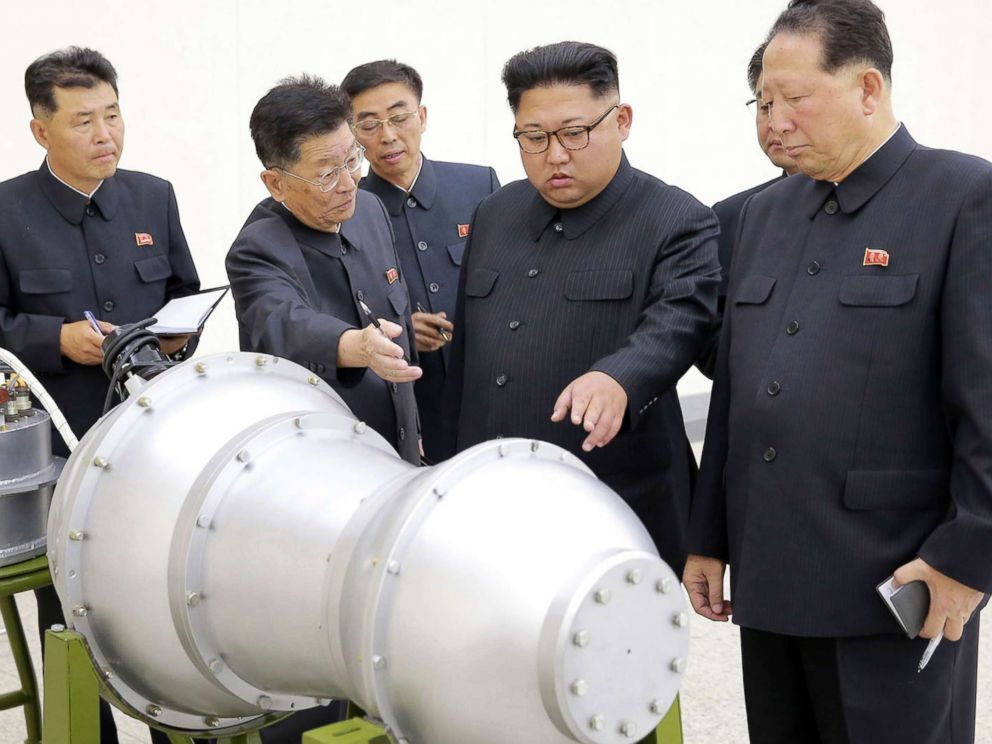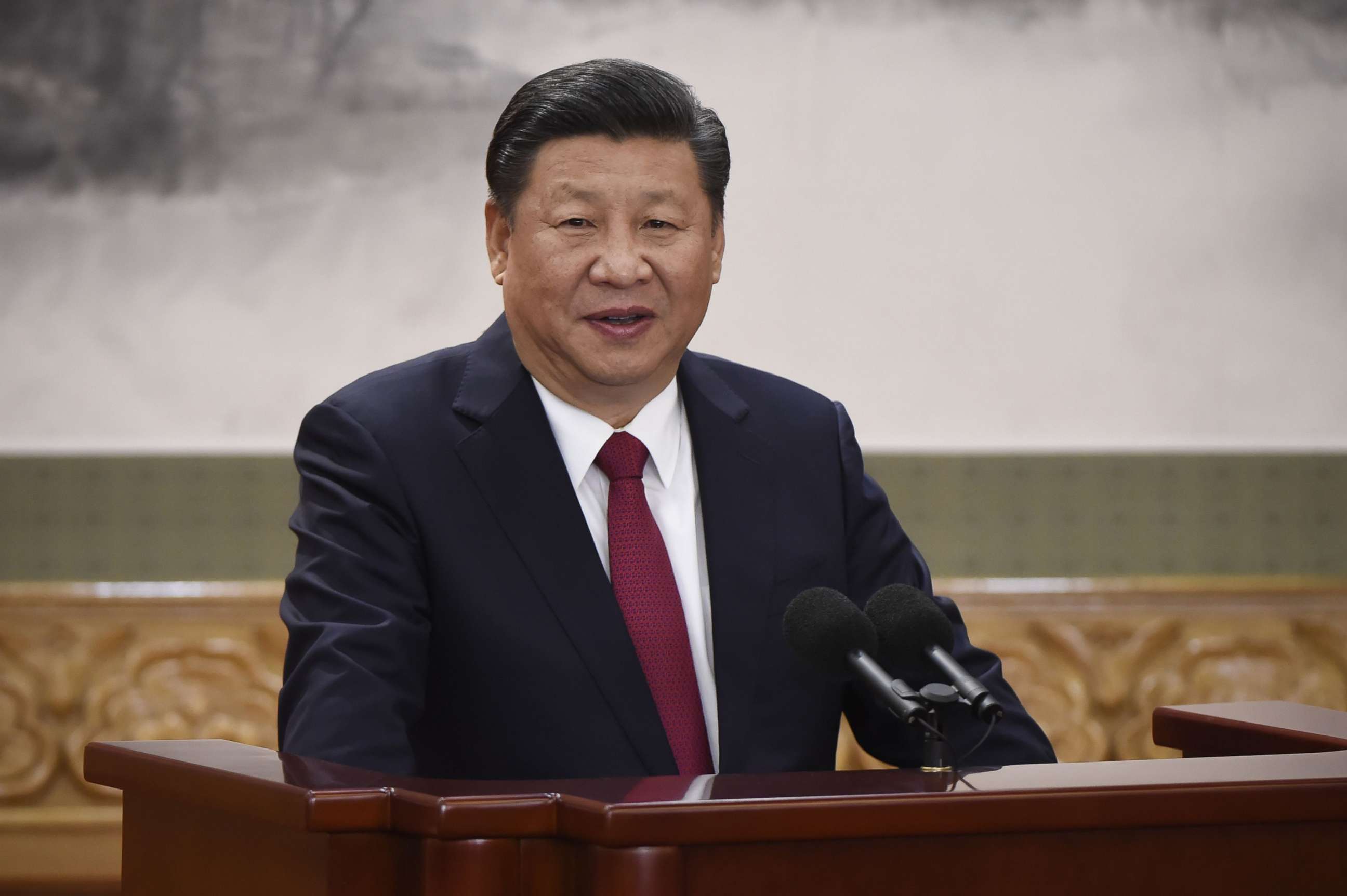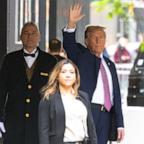Top issues for President Trump on his trip to Japan
Concerns over North Korea, China and trade top the list.
— -- President Trump begins his longest trip yet as president -- a 13-day tour throughout Asia -- with a visit to perhaps the U.S.'s strongest ally in the region and a nation where he enjoys the closest relationship with a leader.
Japan will host the president for two days, from Sunday until Tuesday morning, as Trump hopes to "reaffirm the U.S.-Japan alliance as a cornerstone for regional peace and security," according to a senior administration official.
During that time, he's expected to hold several meetings and play one round of golf with Prime Minister Shinzo Abe, who is fresh off a commanding election victory in October. Trump is also scheduled to visit U.S. troops stationed in the country and meet with families of Japanese citizens abducted by the North Korean regime.
For the Trump administration, Japan has been a steadfast, if somewhat surprisingly strong ally, after Trump at times bashed the country on the campaign trail. Here's a look at the top issues in the key relationship.
Threat from North Korea
Nothing unifies two allies more than a common threat. Kim Jong-un’s provocative ballistic missile and nuclear tests have rattled Japan, especially because some of the most recent missile launches have flown over Japanese airspace.
Abe seized on the threat as a top campaign issue, promising a strong defense of the homeland and aggressive efforts to stop North Korea.

"At a time when North Korea is threatening us and increasing tensions, we must never waver," he said in his last campaign speech before the election last month. "We must not yield to the threat of North Korea."
After a decisive win and a "supermajority" for his party in the parliament, Abe will now forge ahead with his efforts to amend Japan's post-World War II pacifist constitution to officially recognize Japan's "Self-Defense Forces" as a legitimate military.
That's an effort the Trump administration will likely support, as it continues to seek a robust military deterrent of North Korea. Both allies have maintained that "all options," including the use of force, are on the table for dealing with North Korea's nuclear program.
That assertive stance makes South Korea nervous, not only about inciting North Korea, but also because of Japan's history of aggression in South Korea, which still bears fresh scars. Balancing the defensive needs of Japan and the concerns of South Korea, already upset that Trump will spend more time in Japan, will be a tricky tightrope for the president.
Pushing back on China
The Trump administration has entered a new term into its vocabulary -- one that it hopes to use as a clarion call for allies against an increasingly forceful China. After Secretary of State Rex Tillerson first used it in a speech about India, several senior administration officials have begun to talk not about the Pacific or a pivot to Asia, as the Obama administration did, but about the "Indo-Pacific region."
With the U.S. on one end and India on the other, the goal is to increase ties between the world's two largest democracies and unite with like-minded countries Japan and Australia to push back against a China-dominated world order.

"You'll see an emphasis on a need for all countries to adopt economic policies based on free-market principles," a senior administration official said of the trip, in a thinly veiled reference to China.
Pushing that strategy is a key part of the president's trip, and as a dominant economic power that operates by the same rules and norms, Japan is crucial to that effort. It also has a keen interest in making sure its powerful, much larger neighbor doesn't get too strong.
"The president is likely to discuss ways that the Japan and U.S. can continue to work together to promote an open and fair trade and investment climate in the Indo-Pacific," the official added, in particular referencing a shared "vision" for transparent, market-based, and high-standard "development financing for major infrastructure projects" -- another swipe at China and its One Belt, One Road initiative to provide funding for developing countries seeking growth.
Trade no longer an issue?
What's interesting is that in briefing reporters before the trip and in Trump's own rhetoric while in office, Japan's own economic relationship with the U.S. is nearly never mentioned.
As a candidate, Trump often lumped Japan in with China and Mexico, bashing the three countries for their trade deficits with the U.S.
"They do things to us that make it impossible to sell cars in Japan. And yet they sell cars into us, and they come in, like, by the hundreds of thousands on the biggest ships I’ve ever seen," Trump told a group of business leaders on his third day in office. Days later, Trump withdrew the U.S. from the Trans-Pacific Partnership, a multilateral trade deal also known as TPP -- a major disappointment to Japan that stoked fears of further action.
But since then, Abe has undertaken an effective campaign to win Trump over. The two countries have set up an economic dialogue, meeting every couple of months and chaired by Vice President Mike Pence.

The high-level engagement -- and some steps by Japanese manufacturers to ease the trade deficit -- seemed to have paid off, with little heat on Japan since the TPP withdrawal.
That stands in contrast to the U.S.'s other key East Asia ally, South Korea, which Trump has consistently bashed, threatening to tear up the free trade pact known as KORUS.
Some analysts are concerned that doing so at a time when the U.S. needs South Korea in its campaign against North Korea is dangerous, especially because the Trump administration and South Korea's liberal and more pacifist President Moon Jae-in don't always see eye to eye. That's a divide that China and North Korea will both try to take advantage of and deepen.




